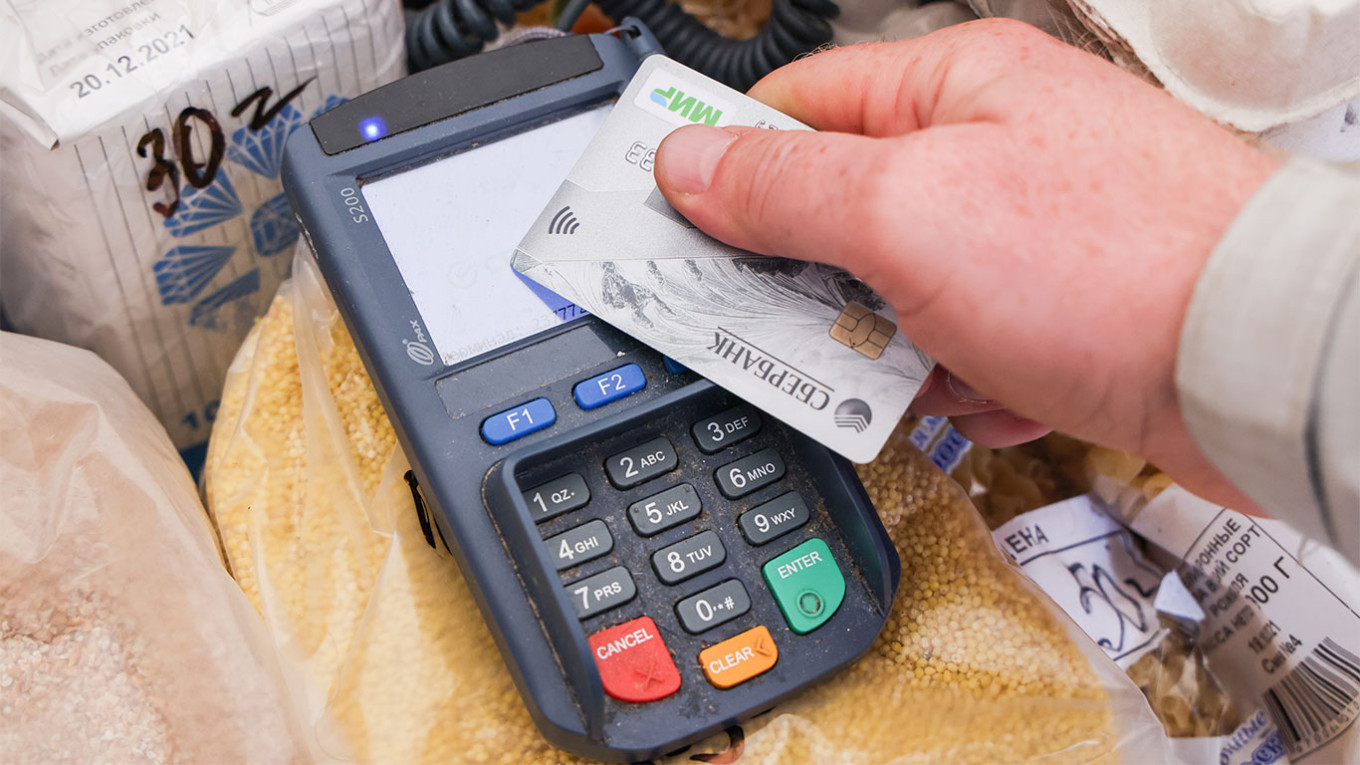Uzbekistan suspended the Russian alternative payment system Mir on Friday amid U.S. pressure on the few countries using the service to drop it.
Russia developed Mir in 2015 to circumvent Western sanctions following its annexation of Crimea, but it has come under U.S. scrutiny since Moscow sent troops into Ukraine.
The Mir card service was suspended in Uzbekistan from 9:00 a.m. (04:00 GMT) due to "technical procedures," said Uzcard, an inter-bank processing center in the former Soviet republic.
Cards co-branded Uzcard and Mir, however, "operate as usual" in Uzbekistan, Uzcard said.
The suspension comes a week after Russian President Vladimir Putin attended a regional summit in Uzbekistan, which Moscow considers part of its sphere of influence.
Turkey — a popular destination for Russians — is expected to decide on Friday on a potential suspension of the bank cards in the country.
A few days earlier, the United States threatened Turkish banks that kept using Mir with financial sanctions.
Russia began developing its own domestic payments system in 2015 following Western sanctions over Russia's annexation of Crimea the previous year.
It resulted in the creation of a card payment system called Mir, or World, accepted in a handful of countries only, including Belarus and Kazakhstan.
Russian authorities would like the cards to be accepted globally, which would ease the financial difficulties Russians now face while traveling.
Last Friday Russian Central Bank chief Elvira Nabiullina said Russia was encountering "difficulties" in the global expansion of the payment system.
More than 100 million Mir cards have been issued over the past seven years, meaning over half of the Russian population has one, according to figures from the card's issuing company.
A Message from The Moscow Times:
Dear readers,
We are facing unprecedented challenges. Russia's Prosecutor General's Office has designated The Moscow Times as an "undesirable" organization, criminalizing our work and putting our staff at risk of prosecution. This follows our earlier unjust labeling as a "foreign agent."
These actions are direct attempts to silence independent journalism in Russia. The authorities claim our work "discredits the decisions of the Russian leadership." We see things differently: we strive to provide accurate, unbiased reporting on Russia.
We, the journalists of The Moscow Times, refuse to be silenced. But to continue our work, we need your help.
Your support, no matter how small, makes a world of difference. If you can, please support us monthly starting from just $2. It's quick to set up, and every contribution makes a significant impact.
By supporting The Moscow Times, you're defending open, independent journalism in the face of repression. Thank you for standing with us.
Remind me later.






